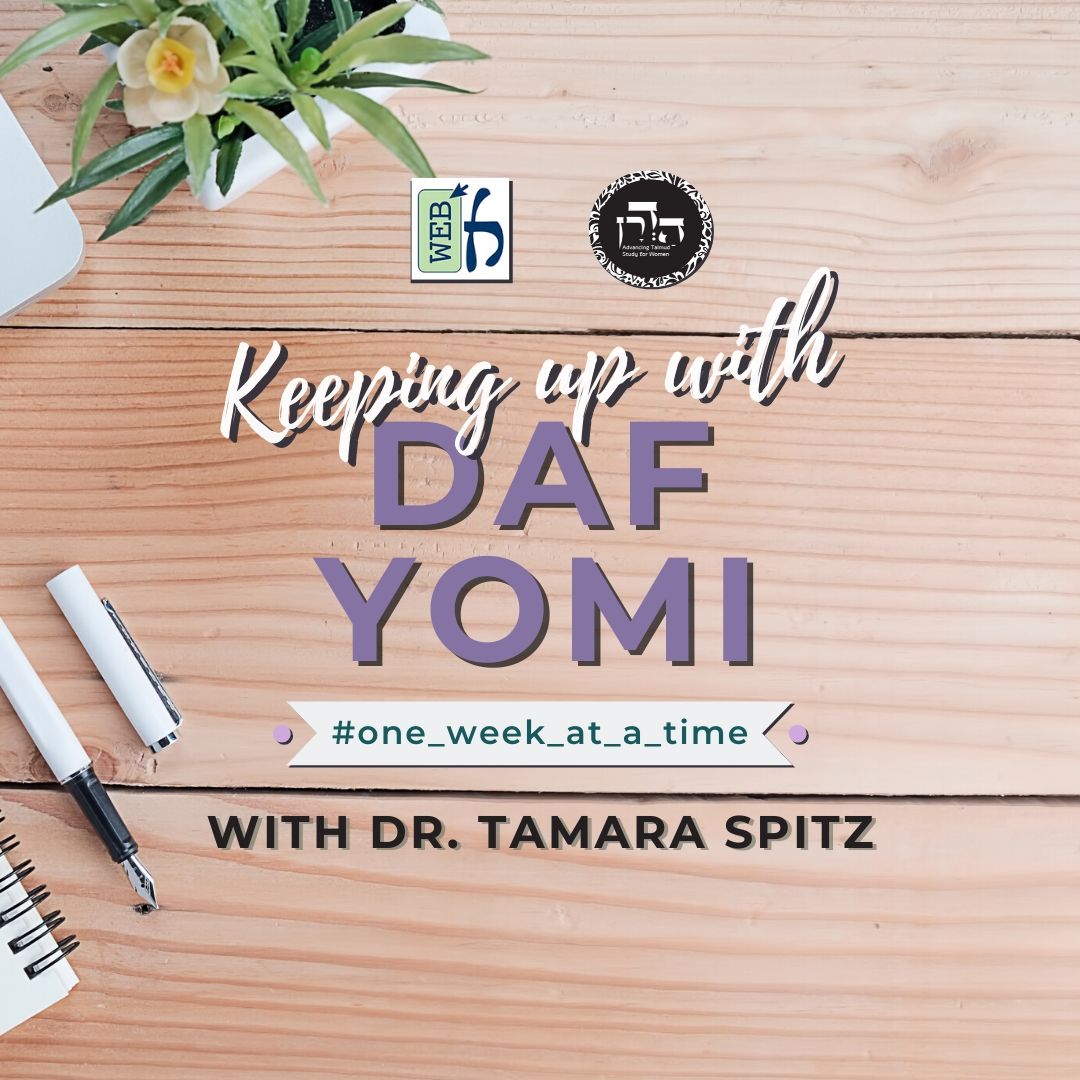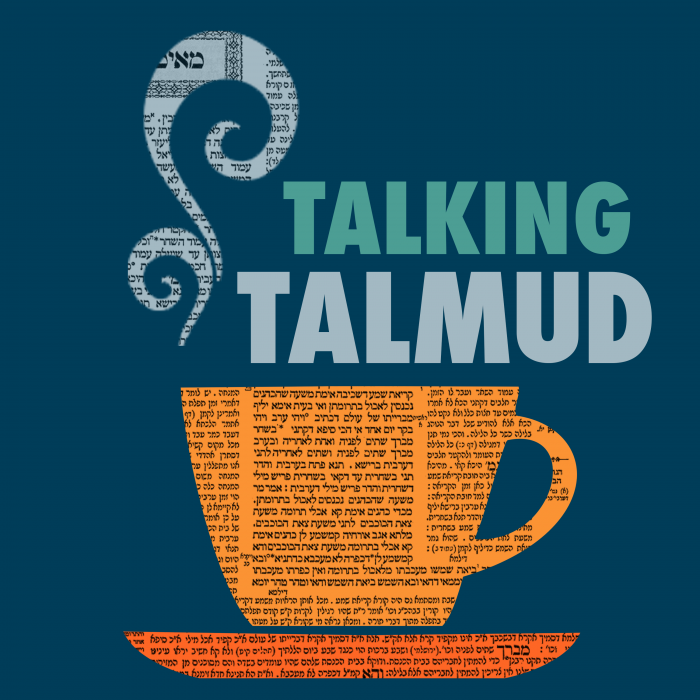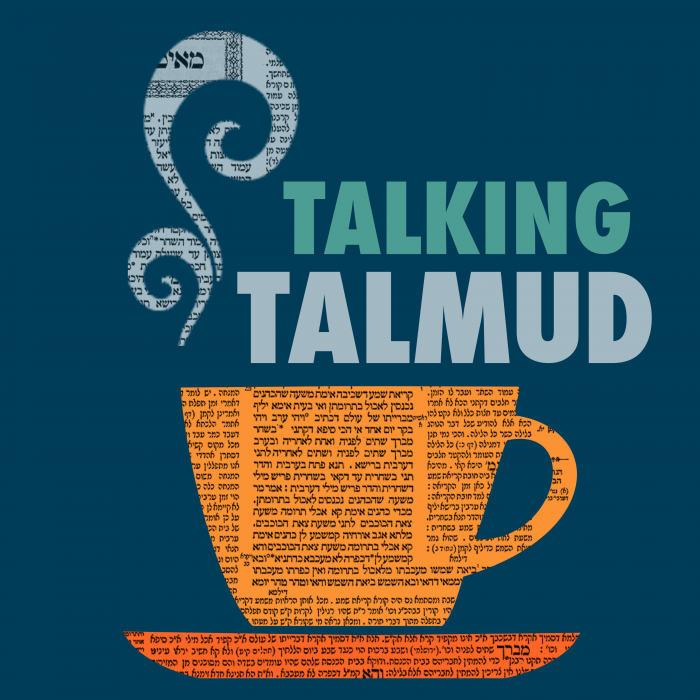Bava Batra 30
דַּאֲמַר לֵיהּ לְחַבְרֵיהּ: כׇּל נִכְסֵי דְּבֵי בַּר סִיסִין – מְזַבֵּינָא לָךְ. הֲוַאי הָהִיא אַרְעָא דַּהֲוָה מִיקְּרֵי ״דְּבֵי בַּר סִיסִין״. אֲמַר לֵיהּ: הָא לָאו דְּבֵי בַּר סִיסִין הִיא, וְאִיקְּרוֹיֵי הוּא דְּמִיקַּרְיָא ״דְּבֵי בַּר סִיסִין״. אֲתוֹ לְקַמֵּיהּ דְּרַב נַחְמָן, אוֹקְמָא בִּידָא דְלוֹקֵחַ. אֲמַר לֵיהּ רָבָא: דִּינָא הָכִי?! הַמּוֹצִיא מֵחֲבֵירוֹ עָלָיו הָרְאָיָה!
who said to another: I am hereby selling to you all of the property that I own of the house of bar Sisin. There was a certain parcel of land that was called: Of the house of bar Sisin. The seller said to the buyer: This parcel of land that I own is not actually of the house of bar Sisin, and it is merely called: Of the house of bar Sisin, and it is not included in the sale. They came before Rav Naḥman for judgment, and he established the land in the possession of the buyer. Rava said to Rav Naḥman: Is this the halakha? Isn’t the halakha that the burden of proof rests upon the claimant, and the land should remain in the possession of the seller?
קַשְׁיָא דְּרָבָא אַדְּרָבָא, קַשְׁיָא דְּרַב נַחְמָן אַדְּרַב נַחְמָן.
The Gemara continues: There is a difficulty from one statement of Rava to another statement of Rava, and there is also a difficulty from one statement of Rav Naḥman to another statement of Rav Naḥman, as in the first case, where the claimant states that he had been in a distant location, Rav Naḥman ruled in favor of the claimant, and Rava ruled in favor of the possessor; while in the second case, that of the property of bar Sisin, their opinions were reversed.
דְּרָבָא אַדְּרָבָא לָא קַשְׁיָא – הָתָם מוֹכֵר קָאֵי בְּנִכְסֵיהּ, הָכָא לוֹקֵחַ קָאֵי בְּנִיכְסֵיהּ.
The Gemara answers: The contradiction between one statement of Rava and another statement of Rava is not difficult, because there, in the case of the property of bar Sisin, the seller had been established as having the land in his property, which is why Rava rules in his favor. But here, in the case where the claimant states that he had been in a distant location, the buyer is established as having the house in his property.
דְּרַב נַחְמָן אַדְּרַב נַחְמָן נָמֵי לָא קַשְׁיָא – כֵּיוָן דַּאֲמַר לֵיהּ: דְּבֵי בַּר סִיסִין, וּמִיקַּרְיָא ״דְּבֵי בַּר סִיסִין״, עֲלֵיהּ דִּידֵיהּ רַמְיָא לְגַלּוֹיֵי דְּלָאו דְּבֵי בַּר סִיסִין הִיא; אֲבָל הָכָא, לֹא יְהֵא אֶלָּא דְּנָקֵיט שְׁטָרָא – מִי לָא אָמְרִינַן לֵיהּ: קַיֵּים שְׁטָרָךְ וְקוּם בְּנִיכְסֵי?
The contradiction between one statement of Rav Naḥman and the other statement of Rav Naḥman is not difficult as well, because there, since the seller said to him: I am hereby selling you all of the property that I own of the house of bar Sisin, and this parcel of land is called: Of the house of bar Sisin, it is incumbent on him to reveal that the parcel under dispute is not of the house of bar Sisin. But here, in the case where the claimant states that he had been in a distant location, it should not be any different from a case where the possessor is holding a document as evidence that he purchased the house. Wouldn’t we then say to him: First ratify your document, and only then be established in the property? In this case as well, since his presumptive ownership is in place of a document, he needs to clarify the matter by means of witnesses.
הָהוּא דַּאֲמַר לֵיהּ לְחַבְרֵיהּ: מַאי בָּעֵית בְּהַאי בֵּיתָא? אֲמַר לֵיהּ: מִינָּךְ זְבֵנְתֵּיהּ, וַאֲכַלְתֵּיהּ שְׁנֵי חֲזָקָה. אֲמַר לֵיהּ: בְּשׁוּקֵי בָּרָאֵי הֲוַאי. אֲמַר לֵיהּ: וְהָא אִית לִי סָהֲדִי דְּכֹל שַׁתָּא הֲוָה אָתֵית תְּלָתִין יוֹמֵי! אֲמַר לֵיהּ: תְּלָתִין יוֹמֵי – בְּשׁוּקַאי הֲוָה טְרִידְנָא. אָמַר רָבָא: עֲבִיד אִינִישׁ דְּכֹל תְּלָתִין יוֹמֵי טְרִיד בְּשׁוּקָא.
There was a certain person who said to another: What do you want with this house of mine? The possessor said to him: I purchased it from you and I worked and profited from it for the years necessary for establishing the presumption of ownership. The claimant said to him: I was in the outer marketplaces, and was unaware that you were residing in my house, and therefore did not lodge a protest, so your profiting does not establish the presumption of ownership. The possessor said to him: But I have witnesses that every year you would come here for thirty days and had an opportunity to know that I was residing in your house and to lodge a protest. The claimant said to him: I was occupied with my business in the marketplaces for those thirty days. Rava said: A person is apt to be occupied with business in the marketplace for all of thirty days, and accepted his claim.
הָהוּא דְּאָמַר לֵיהּ לְחַבְרֵיהּ: מַאי בָּעֵית בְּהַאי אַרְעָא? אֲמַר לֵיהּ: מִפְּלָנְיָא זְבֵינְתַּהּ, דְּאָמַר לִי דְּזַבְנַהּ מִינָּךְ. אֲמַר לֵיהּ: אַתְּ לָאו קָא מוֹדֵית
There was a certain person who said to another: What do you want with this land of mine? The possessor said to him: I purchased it from so-and-so, who told me that he purchased it from you. The claimant said to him: Don’t you concede
דְּהַאי אַרְעָא דִּידִי הִיא, וְאַתְּ לָא זְבֵינְתַּהּ מִינַּאי? זִיל, לָאו בַּעַל דְּבָרִים דִּידִי אַתְּ. אָמַר רָבָא: דִּינָא קָאָמַר לֵיהּ.
that this land is formerly mine, and that you did not purchase it from me? Go away; I am not legally answerable to you. Rava said: The claimant stated the halakha to the possessor, as this is a legitimate claim, and Rava accepted his claim.
הָהוּא דְּאָמַר לֵיהּ לְחַבְרֵיהּ: מַאי בָּעֵית בְּהַאי אַרְעָא? אֲמַר לֵיהּ: מִפְּלָנְיָא זְבֵינְתַּהּ, וַאֲכַלְתִּיהָ שְׁנֵי חֲזָקָה. אֲמַר לֵיהּ: פְּלָנְיָא גַּזְלָנָא הוּא.
There was a certain person who said to another: What do you want with this land of mine? The possessor said to him: I purchased it from so-and-so and then I worked and profited from it for the years necessary for establishing the presumption of ownership. The claimant said to him: So-and-so is a robber who robbed me of the field, and he did not have the authority to sell it to you.
אֲמַר לֵיהּ: וְהָא אִית לִי סָהֲדִי דַּאֲתַאי אִימְּלַכִי בָּךְ, וַאֲמַרְתְּ לִי: ״זִיל זְבֹין״! אֲמַר לֵיהּ: הַשֵּׁנִי נוֹחַ לִי; הָרִאשׁוֹן קָשֶׁה הֵימֶנּוּ. אָמַר רָבָא: דִּינָא קָאָמַר לֵיהּ.
The possessor said to him: But I have witnesses that I came and consulted with you, and you said to me: Go purchase the land, indicating that you conceded that he had the authority to sell it. The claimant said to him: The reason that I advised you to purchase it was because the second person, i.e., you, the possessor, is amenable to me, while the first, i.e., the purported thief, is more difficult than he, i.e., I prefer to litigate with you rather than with him. Rava said: The claimant stated the halakha to the possessor, as this is a legitimate claim, and Rava accepted his claim.
כְּמַאן, כְּאַדְמוֹן? דִּתְנַן: הָעוֹרֵר עַל הַשָּׂדֶה וְחָתוּם עָלֶיהָ בְּעֵד – אַדְמוֹן אוֹמֵר: הַשֵּׁנִי נוֹחַ לִי; הָרִאשׁוֹן קָשֶׁה הֵימֶנּוּ. וַחֲכָמִים אוֹמְרִים: אִיבֵּד אֶת זְכוּתוֹ.
The Gemara asks: In accordance with whose opinion is Rava’s statement? Is it in accordance with the opinion of Admon? As we learned in a mishna (Ketubot 109a): With regard to one who contests ownership of a field, claiming that a field possessed by someone else actually belongs to him, and the claimant himself is signed as a witness on the bill of sale of the field to that other person, Admon says: His signature does not disprove his claim of ownership of the property, as it is possible that the claimant said to himself: The second person is amenable to me to deal with, as I can reason with him, while the first owner, who sold the field to the current possessor, is more difficult to deal with than he. And the Rabbis say: He lost his right to contest, as he signed a bill of sale that states that the field belongs to the possessor. Rava’s ruling appears to be in accordance with the individual opinion of Admon, and not with the opinion of the Rabbis.
אֲפִילּוּ תֵּימָא רַבָּנַן – הָתָם עֲבַד לֵיהּ מַעֲשֶׂה; אֲבָל הָכָא דִּבּוּרָא – עֲבִיד אִינִישׁ דְּמִיקְּרֵי וְאָמַר.
The Gemara explains: You may even say that Rava’s ruling is in accordance with the opinion of the Rabbis. There, in the case of the mishna in tractate Ketubot, by signing the bill of sale the claimant performed an action indicating that the field was not his for the benefit of the possessor of the field, but here, in Rava’s case, there was no action, only speech, and a person is apt to casually say statements, and he does not lose his right by virtue of this.
הָהוּא דְּאָמַר לֵיהּ לְחַבְרֵיהּ: מַאי בָּעֵית בְּהַאי אַרְעָא? אֲמַר לֵיהּ: מִפְּלָנְיָא זְבֵינְתַּהּ, וַאֲכַלְתִּיהָ שְׁנֵי חֲזָקָה. אֲמַר לֵיהּ: פְּלָנְיָא גַּזְלָנָא הוּא! אֲמַר לֵיהּ: וְהָא אִית לִי סָהֲדִי דַּאֲתֵית בְּאוּרְתָּא, וַאֲמַרְתְּ לִי: זַבְנַהּ נִיהֲלִי! אֲמַר לֵיהּ: אָמֵינָא אֶיזְבּוֹן דִּינַאי. אָמַר רָבָא: עֲבִיד אִינִישׁ דְּזָבֵין דִּינֵיהּ.
There was a certain person who said to another: What do you want with this land of mine? The possessor said to him: I purchased it from so-and-so and then I worked and profited from it for the years necessary for establishing the presumption of ownership. The claimant said to him: So-and-so is a robber who robbed me of the field, and he did not have the authority to sell it to you. The possessor said to him: But I have witnesses that you came to me at night and you said to me: Sell it to me, indicating that it is not your land, as if it were yours, you would have demanded that I return it without your paying for it. The claimant said to him: I said to myself: Let me purchase the benefit of avoiding my litigation in order to reclaim my land. Rava said: A person is apt to pay money to purchase the benefit of avoiding his litigation.
הָהוּא דַּאֲמַר לֵיהּ לְחַבְרֵיהּ: מַאי בָּעֵית בְּהַאי אַרְעָא? אֲמַר לֵיהּ: מִפְּלָנְיָא זְבֵינְתַּהּ, וַאֲכַלְתִּיהָ שְׁנֵי חֲזָקָה. אֲמַר לֵיהּ: וְהָא נְקִיטְנָא שְׁטָרָא דִּזְבַנִי לַיהּ מִינֵּיהּ הָא אַרְבְּעִי שְׁנֵי!
There was a certain person who said to another: What do you want with this land of mine? The possessor said to him: I purchased it from so-and-so and then I worked and profited from it for the years necessary for establishing the presumption of ownership, indicating that he possessed it for three years, as this is the minimum number of years required for establishing the presumption of ownership. The claimant said to him: But I am holding a document stating that I purchased it from that seller four years ago. Therefore, if it was sold to you three years ago, as you claim, he did not have the authority to sell it at that time.
אֲמַר לֵיהּ: מִי סָבְרַתְּ ״שְׁנֵי חֲזָקָה״ – תְּלָת שְׁנֵי קָא אָמֵינָא?! שְׁנֵי חֲזָקָה טוּבָא קָא אָמֵינָא. אָמַר רָבָא: עֲבִידִי אִינָשֵׁי דְּקָרוּ לִשְׁנֵי טוּבָא ״שְׁנֵי חֲזָקָה״.
The possessor said to him: Do you maintain that when I said: I profited from the land for the years necessary for establishing the presumption of ownership, that I was saying I worked and profited from the land for precisely three years? What I actually was saying was that I worked and profited from the land for many years and thereby established the presumption of ownership. Since my purchase predated yours, it was effective. Rava said: It is common for people to refer to many years as: Years necessary for establishing the presumption of ownership, and his claim is accepted.
וְהָנֵי מִילֵּי דְּאַכְלַהּ שְׁבַע – דִּקְדֵים חֲזָקָה דְהַאי לִשְׁטָרָא דְהָךְ;
The Gemara comments: And this matter applies only if he profited from the land for seven years, so that presumptive ownership of this possessor preceded the document of that claimant.
























